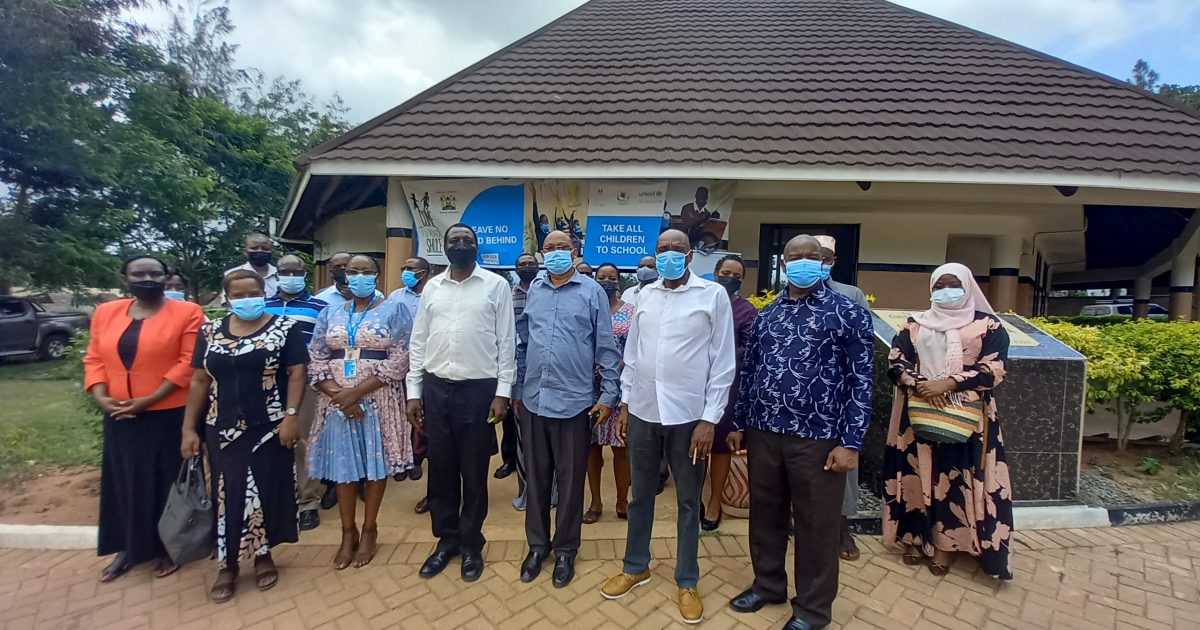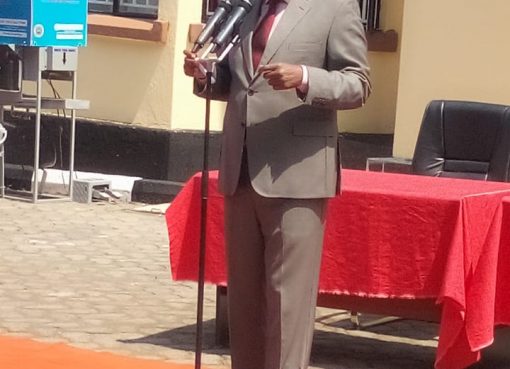Education stakeholders in Kwale County have launched a new drive to get out-of-school children back to class.
The operation dubbed ‘come to school’ is a joint initiative by the Governmental Kenya and UNICEF targeting children in 16 counties where they are most at risk of dropping out of school.
The program brings on board the stakeholders in the Ministry of Education, the Ministry of Interior and Coordination of National Government and the State Department of Children.
According to research conducted by UNICEF in 2020, over 18,000 primary school pupils in the coastal county have terminated their learning.
Rising cases of early marriages and pregnancies thrived during the long closure of learning institutions following the outbreak of the Covid-19 pandemic forcing many pupils not to resume their studies.
The rising levels of poverty in the coastal county have forced pupils to stay at home and indulge in drug and substance abuse and acts of lawlessness.
Addressing the press during the launch of the operation in Matuga sub county, Kwale County Director of Education, Martin Cheruiyot thanked UNICEF for the effort and resources they have put in place to help the children in the county.
Cheruiyot added that the county has been trailing behind in education despite the ‘Elimu Ni Sasa’ scholarship program from the county government.
”As education stakeholders we are committed to ensuring that all children in the county have access to education and this new drive is a step in the direction,’’Cheruiyot said.
He said the come-to-school program is a three-year initiative that will be on course up to the end of 2023.
The program will see education officials, chiefs and their assistants and village elders in the county moving around in a bid to get children who are out of school back into class.
“The program will monitor entertainment places, grazing fields and market places where those who dropped out of school are likely to be loitering or doing menial jobs,” said Cheruiyot.
According to UNICEF, in 2020 more than 1068 pupils in the county dropped out of school with Msambweni sub-county recording the highest number of 615 followed by Lunga-Lunga sub-county at 375.
Pupils in the said sub counties are reported to have been active in seeking employment in livestock ranches and in the boda boda industry which has become very rampant.
The education director noted that the government will crack the whip to instill discipline to parents who will not take their pupils to the school.
”Children have the right to basic education and it’s the responsibility of parents to ensure their children are in school. We won’t sit back and watch as some irresponsible parents force their children into child labour,” said Cheruiyot.
The county director of education said the ‘come to school program’ will also seek to ensure school infrastructure is rehabilitated and equipped with improved teaching and learning materials.
He said the program advocates for the creation of an enabling environment for children while in schools. “Initiatives such as mentorships and counseling shall be put in place to guide those who will be brought back to school,” he said.
He said phase two of the initiative will be aim at increasing the enrolment and retention of primary school-aged children, including girls and children with disabilities.
Approaches will include community mobilization, cash transfers and educational supplies to support families, teacher training and generating new evidence and policies.
UNICEF Education Officer, Elizabeth Waitha said the program will eventually help restore the dignity and future of children.
‘‘We are also going to advocate and champion projects like school feeding programs to attract learners to schools as it is a common knowledge that it is poverty that is forcing children out of school,’’Waitha added.
Waitha pointed out that children living with disabilities in the county have been denied rights to education.
She said the county has more than 650 pupils living with various disabilities who have been denied the opportunity of pursuing their education dreams.
She added that pupils living with disabilities are facing stigma and discrimination and called for mitigation measures to help salvage the situation.
She said UNICEF is currently working with the major telecommunication networks to come up with a digital register by December 2021. “The new technology will help school heads to track the movement of pupils in schools and track their progress,” she said.
Waitha called on the Ministry of Education to issue the affected children with unique registration numbers for monitoring.
The UNICEF education officer said they have plans to offer training to teachers to equip them with special skills to help them handle children with special needs.
“We want everyone in the community to support this move, especially the local administrators. We want to ensure that every child has access to basic education regardless of their social background,” Waitha added.
She said the rate at which boys and girls dropped out from schools in the coastal region is worrying as most pupils who completed primary school could not continue to high school due to debilitating poverty.
Matuga Sub County Deputy County Commissioner Alexander Mativo welcomed the new drive to take children back to school noting that the transition rates from primary school to secondary level of education was still low in the region.
The administrator attributed the sorry state of affairs for the non-transition to lack of funds to pay school fees, early marriages and teen pregnancies, long distances to school and generally lack of interest in schooling.
The deputy county commissioner said the approach adopted by UNICEF will bear fruits since the targeted areas for intervention are identified.
He said his office will offer maximum support to make the program successful adding that parents who sabotage the government’s 100 per cent transition policy to secondary education would be dealt with.
Mativo said the push to achieve a 100 per cent transition rate from primary to secondary school level is meant to give all children free access to 12 years of learning.
By Raymond Zaka and Hussein Abdullahi




